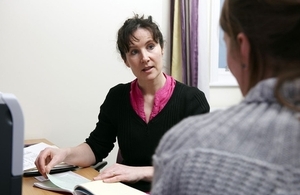Screening for risk of sudden cardiac death not recommended
The UK National Screening Committee (UK NSC) has upheld a recommendation against screening for risk of sudden cardiac death.

Consultation with a GP
Sudden cardiac death happens when a healthy young person’s heart suddenly stops beating, with little or no warning.
The committee considered the evidence behind several proposed ways of screening people aged 12 to 39, including electrocardiography (ECG), personal or family history, physical examination and a combination of these approaches.
However, an updated evidence review suggested that the available tests were not accurate enough to correctly identify conditions which could lead to sudden cardiac death without wrongly identifying many people with healthy hearts.
Dr Anne Mackie, Director of Programmes for the UK National Screening Committee (UK NSC), said:
In addition to concerns about the test, there were uncertainties about the overall benefit of identifying people at risk, as currently the harms seem to outweigh the benefits.
There is no agreed treatment for someone who has been identified as being at risk and an individual may become anxious about their physical activity and stop exercising regularly, which could have a negative effect on their overall health.
Anyone who has had palpitations, breathlessness or is related to someone who has died before 50 of unknown causes should see their GP for a personal check.
The recommendation on risk of sudden cardiac death was made following a review of the available evidence at the June meeting of the UK NSC.
At the same meeting, members of the committee recommended against introducing a national screening programme for Fragile X syndrome, a genetic condition affecting around 1 in 5,000 men and women in most western countries.
The latest screening recommendations were made at the UK NSC committee meeting on 18 June 2015, the minutes of which are published today (Thursday 30 July 2015).
Screening for Fragile X syndrome in pregnancy
Fragile X syndrome is the most common cause of inherited learning disabilities in the UK. The UK NSC recommended against screening as there was no good evidence that treating or managing the condition in an infant would improve outcomes compared to a diagnosis in children. There were also no treatments that could be offered to those identified.
The full minutes from the UK NSC meeting in June are available on the UK NSC page.
Background
-
The UK NSC is independent of, but supported by, Public Health England.
-
Detailed summaries are available of the recommendations of the UK NSC for all of the conditions mentioned.
-
Public Health England (PHE) exists to protect and improve the nation’s health and wellbeing, and reduce health inequalities. It does this through world-class science, knowledge and intelligence, advocacy, partnerships and the delivery of specialist public health services. PHE is an operationally autonomous executive agency of the Department of Health. Follow us on Twitter @PHE_Screening.
UKHSA press office: screening